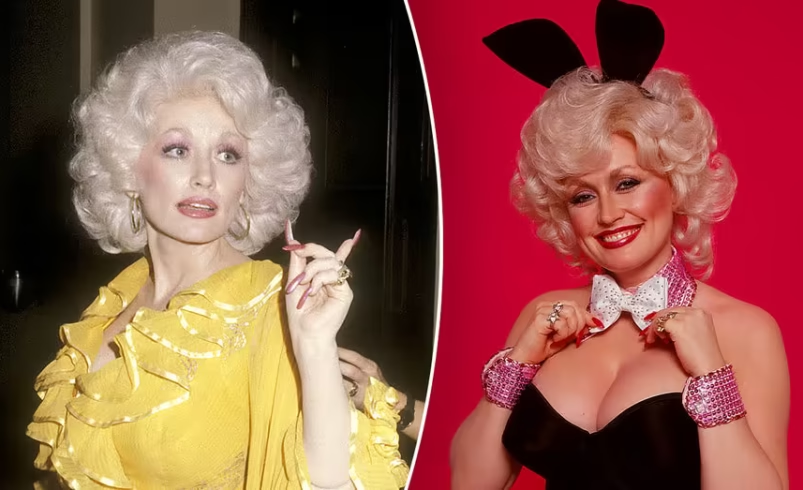Dolly Parton’s Iconic Playboy Cover: A Thoughtful Tribute to Religious Fans
- August 4, 2025
- 0

Dolly Parton, renowned for her deep connection with fans, made a significant decision in 1978 when she posed for Playboy magazine. Understanding the diverse nature of her audience, which included many religious followers, Parton requested modifications to the traditional Playboy bunny outfit. Her intention was to ensure that the costume would not offend her more conservative fans. This decision was part of a broader discussion with her manager, Sandy Gallin, who assured her that Playboy was a classy platform for an interview. However, Parton remained concerned about how her appearance might be perceived by her Bible-carrying admirers.
In an interview conducted by Lawrence Grobel, a well-known celebrity journalist, Parton expressed her initial apprehensions about appearing on the cover. She was clear that she did not want to be portrayed naked or in a manner that could be misinterpreted. Parton emphasized that while she personally did not find the idea offensive, she was mindful of how it might be received by her country music fans and those with strong religious beliefs. Her candidness during the interview revealed her awareness of public perception and her desire to maintain a respectful image.
Parton’s reflections on the Playboy cover continued into later years. In 2024, she reiterated to Business Insider that while she was comfortable with the shoot, she had no intention of participating in any nude layouts. Her decision-making process was guided by her instincts and personal boundaries. Despite the magazine’s eventual discontinuation, Parton honored her earlier wish to recreate the iconic look for her husband Carl Dean’s birthday in 2021. This gesture underscored her playful spirit and enduring love for Dean, who had always admired the original cover.
Throughout her career, Parton has maintained a unique perspective on beauty and identity. In her original 1978 Playboy interview, she expressed surprise at being considered a sex symbol, stating that it was never an image she sought to cultivate. Instead, she embraced her flamboyant style without viewing it as inherently sexy. Her approach reflects a broader philosophy of authenticity and self-acceptance, prioritizing personal comfort over societal expectations.